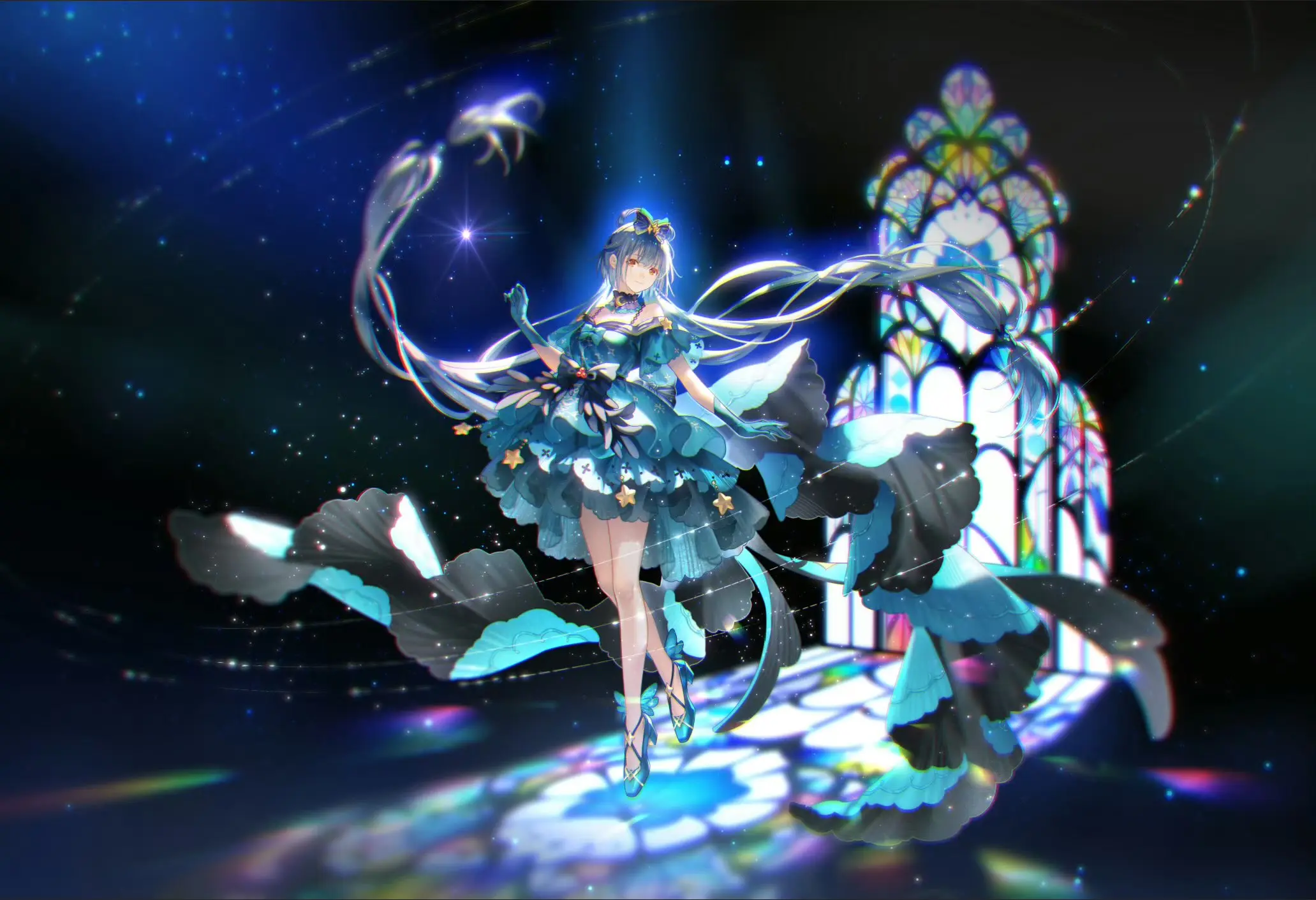lone's blog corner

where i write about random events from VSINGER’s history. she/her, updates whenever Return to Home
A Look Back At VOCALOID CHINA PROJECT’s First Design Contest.
Written 06/18/25, regarding events from 2011. Around the beginning of the VOCALOID3 era, the conglomerate known as VOCALOID CHINA, operated by the company Shanghai Henian would come to be. This group would relay Japanese & Korean VOCALOID news to Chinese fans, as well as be a distributor of various VOCALOID products in mainland China. They worked hand in hand with YAMAHA to do this— the CEO of Shanghai Henian at the time, Ren Li, formerly worked in the VOCALOID department of YAMAHA before founding his company.
When Chinese voice capabilities were being developed for the VOCALOID3 engine, VOCALOID CHINA jumped on the opportunity to create and distribute the first Chinese VOCALOID voice. To do this, they announced a design contest where the winner would become the first Chinese VOCALOID for the engine. This contest and the winning entry’s activities for the years to come would be known as VOCALOID CHINA PROJECT.
Today, I'd like to take a brief look back at this contest with you all!
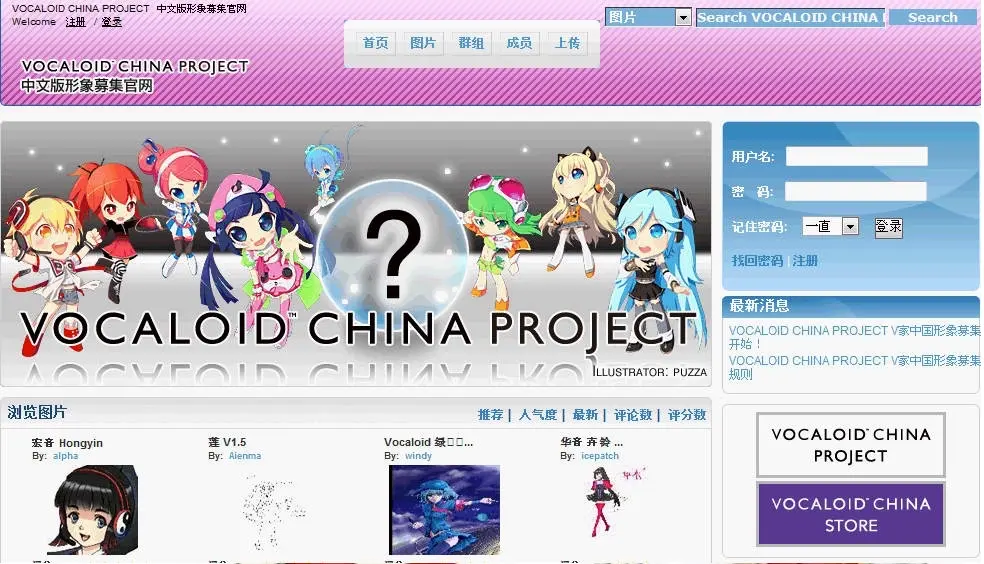
An Outline of The Contest
通过日本YAMAHA株式会社的努力和技术研发,终于使开发中文版的VOCALOID™成为可能。由此我们也终于实现了开始制作中文 版的中国正品VOCALOID的愿望。作为第一个中国正品的VOCALOID™角色形象,我们决定将采取公募的方法来征集。在日本, 包括初音ミク 和“Megpoid”在内,已经有多个VOCALOID™的可爱形象诞生并得到推广,数以万计的VOCALOID™ P也用这些 可爱的形象制作了大量的V家歌曲,深受人们欢迎。从今天开始,中国正品的VOCALOID™也将开始进入研发阶段了!喜爱 VOCALOID™的朋友们,你们觉得什么样的角色形象更合适作为中国的VOCALOID™,而这个角色又将唱出怎么样的VOCALOID ™中 文歌曲呢?请尽情发挥您的想象,我们期待充满创意,充满中国特色的中国正品VOCALOID™角色或将由您亲手创造出来!The design contest was announced November 20th, 2011. Design submissions were open December 1st, and were closed January 3rd, 2012. On the 17th, the winner and runner-up designs were announced.
MTL: Through the efforts and technical research and development of Japan's YAMAHA Co., Ltd., it has finally become possible to develop a Chinese version of VOCALOID™. As a result, we have finally realized our wish to start making a Chinese version of the authentic Chinese VOCALOID. As the first authentic Chinese VOCALOID™ character image, we have decided to adopt a public solicitation method to collect designs. In Japan, character images like “Hatsune Miku”, "Megpoid", and many other cute VOCALOID™ have been born and promoted. Tens of thousands of VOCALOID™ Ps have also used these cute images to create a large number of V-family songs, which are very popular. Starting today, the authentic Chinese VOCALOID™ will also enter the research and development stage! Friends who love VOCALOID™, what kind of character image do you think is more suitable as the Chinese VOCALOID™, and what kind of VOCALOID™ Chinese songs will this character sing? Please give the reins to your imagination. We look forward to the creation of a creative and Chinese-style authentic Chinese VOCALOID™ character by you!
请把自己原创的绘画形象稿件上传到VOCALOID™™™ CHINA PROJECT官方指定网站。我们将从上传的作品中进行评选。评选将以我 公司的制作人为主,并在YAMAHA株式会社的全力配合下,在公司内部进行。 中选的优秀角色形象创意和点子,将作为中国正品的第一号VOCALOID™被采用、并被推向商品化。另外,选拔出的作品将会在尽 量保证原创性的前提下由我们负责设计世界观的绘师(人选未定)对其进行适当的修改,敬请理解。
请不要过于拘泥于绘画本身功力的优劣,创意与构思才是一切! 我们衷心期待第一款中国正品的VOCALOID™会诞生自一个充满创意的构思,还请大家踊跃参加。
MTL: Please upload your original drawing to the official website of VOCALOID™™ CHINA PROJECT. We will select from the uploaded works— this will be conducted by our company's producers and carried out with the full cooperation of YAMAHA. The selected excellent character image idea will be adopted as the first authentic Chinese VOCALOID™ and promoted to commercialization. In addition, the selected works will be appropriately modified by our illustrator (undecided) who is responsible for designing the world setting while ensuring the originality as much as possible. Please understand.
Please do not be too obsessed with the quality of the painting itself, creativity and concept are everything! We sincerely hope that the first authentic Chinese VOCALOID™ will be born from a creative concept.
The prizes for winning were:
Some interesting things of note:
1) Though the idea of incorporating Chinese aesthetics into the design was heavily hinted at in the above paragraphs, in actuality, no strict design guidelines were given for the contest participants. Aside from the usual forbidden topics (submitting offensive or political designs, plagiarizing designs), fans were able to submit any amount of designs they wanted. They would all be made visible on the website for the design contest after submission.
2) Because no strict design guidelines were given, and because no voicebank was recorded for people to base their design off of, no gender was specified for the first Chinese VOCALOID. As a result, designs for both boys and girls were submitted.
3) One rule for submissions was “The works to be submitted must be original works that have not been published by the participants themselves, and have never been used in other similar activities”. However, some people submitted their UTAU’s designs in hopes they would be made into VOCALOID.
Examples of Submissions That Didn’t Win
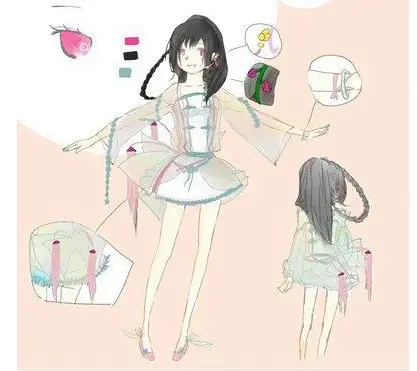
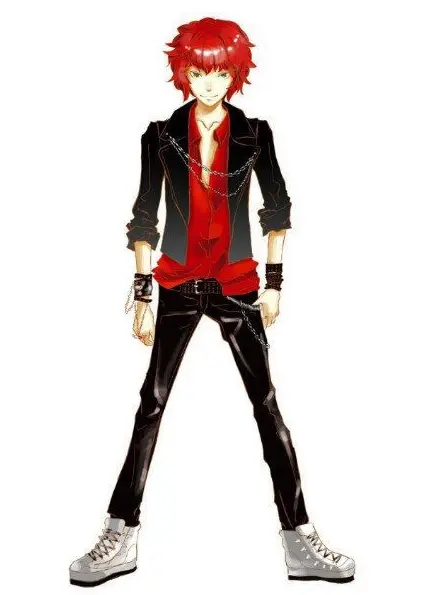
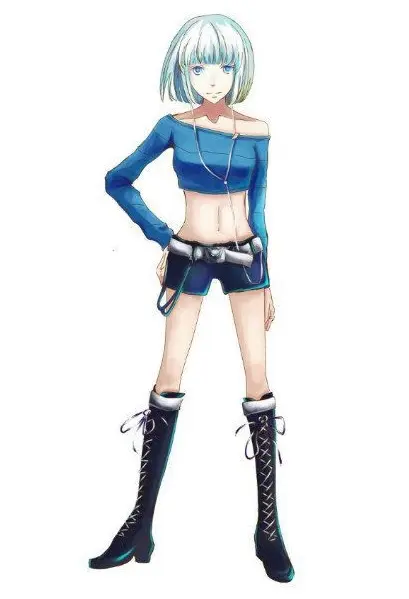
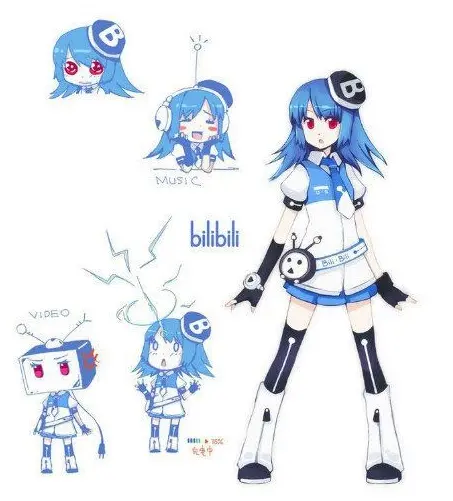
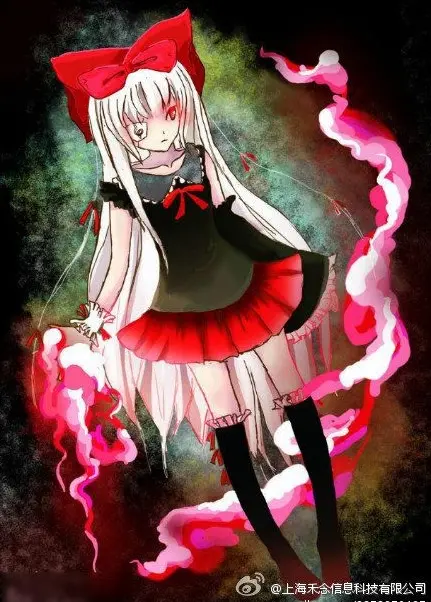
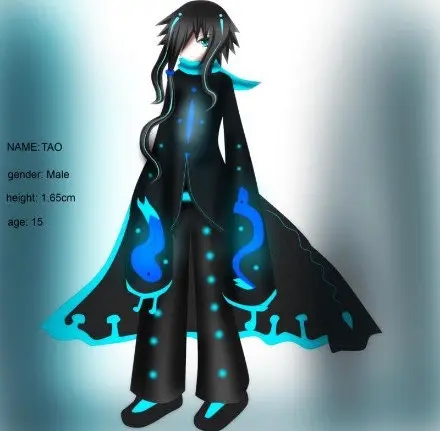
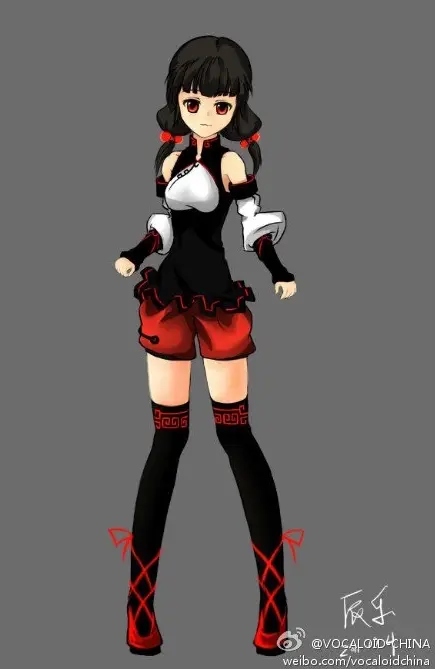
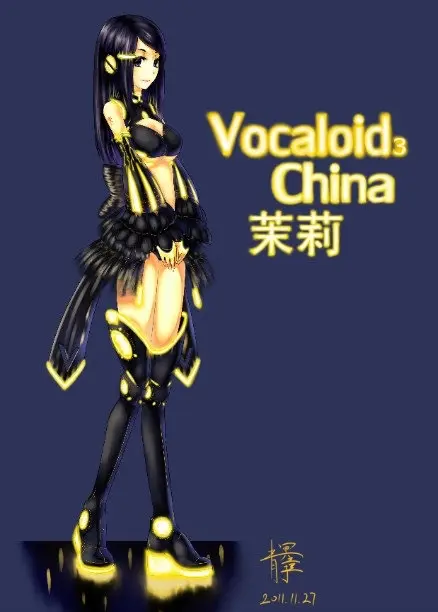
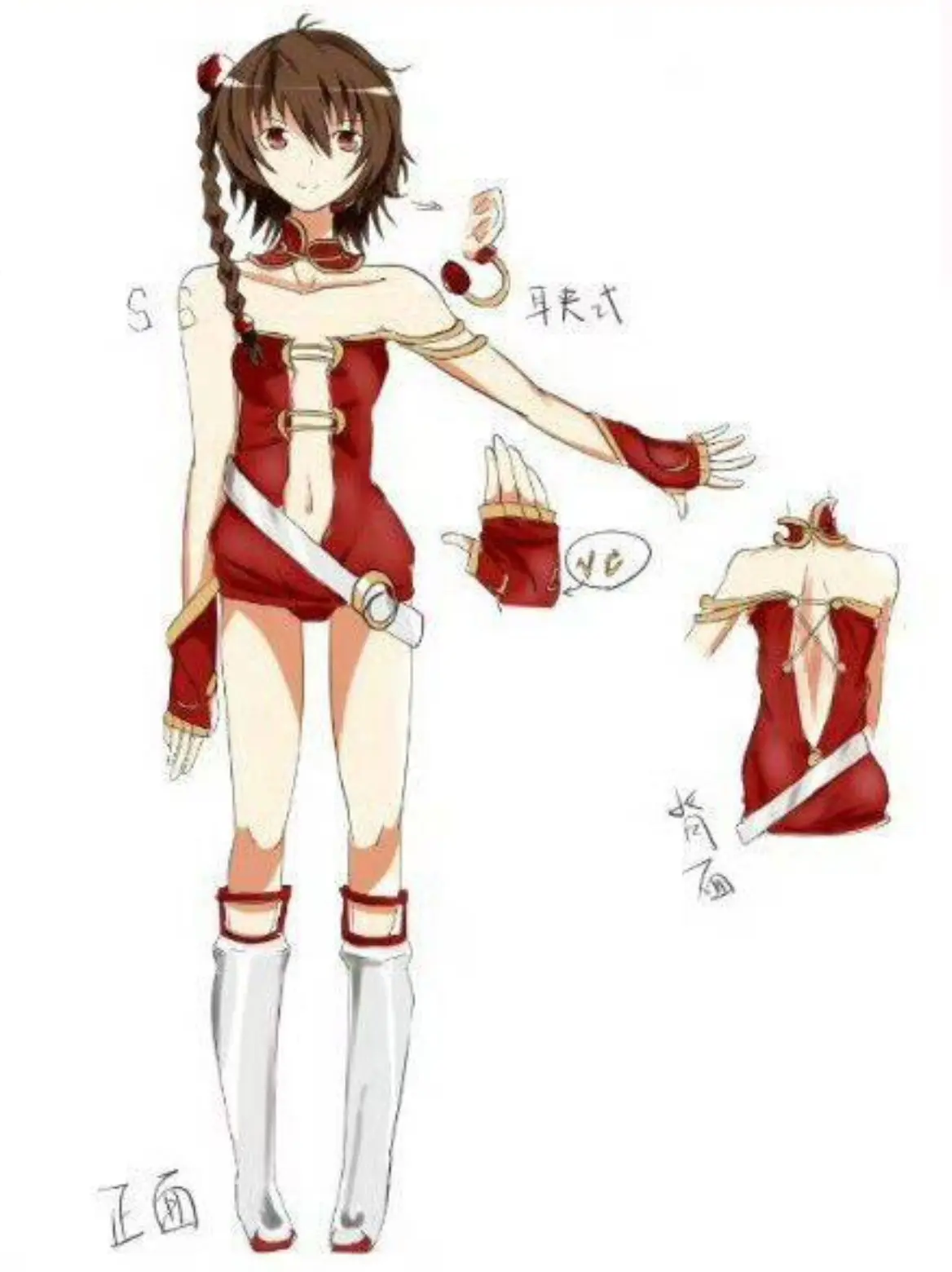
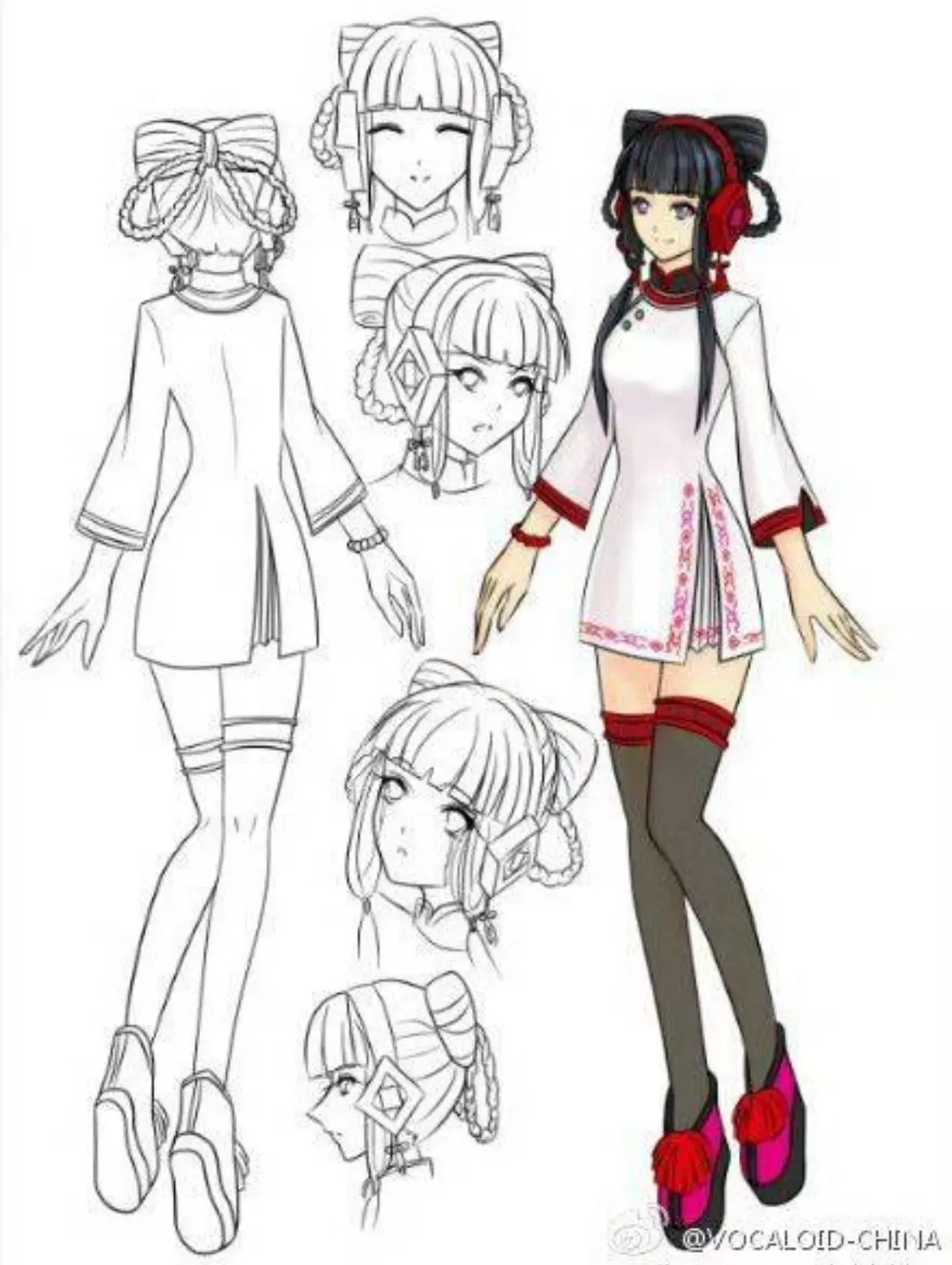
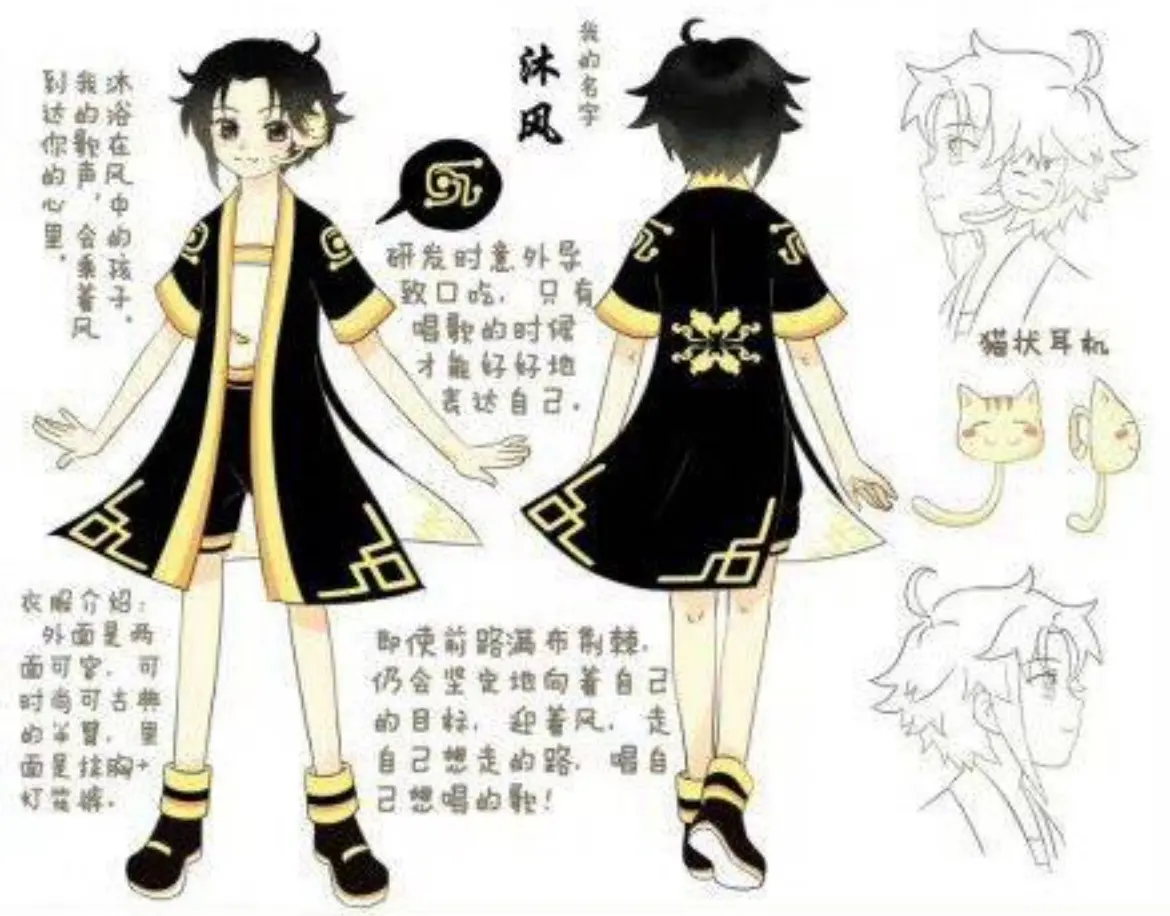
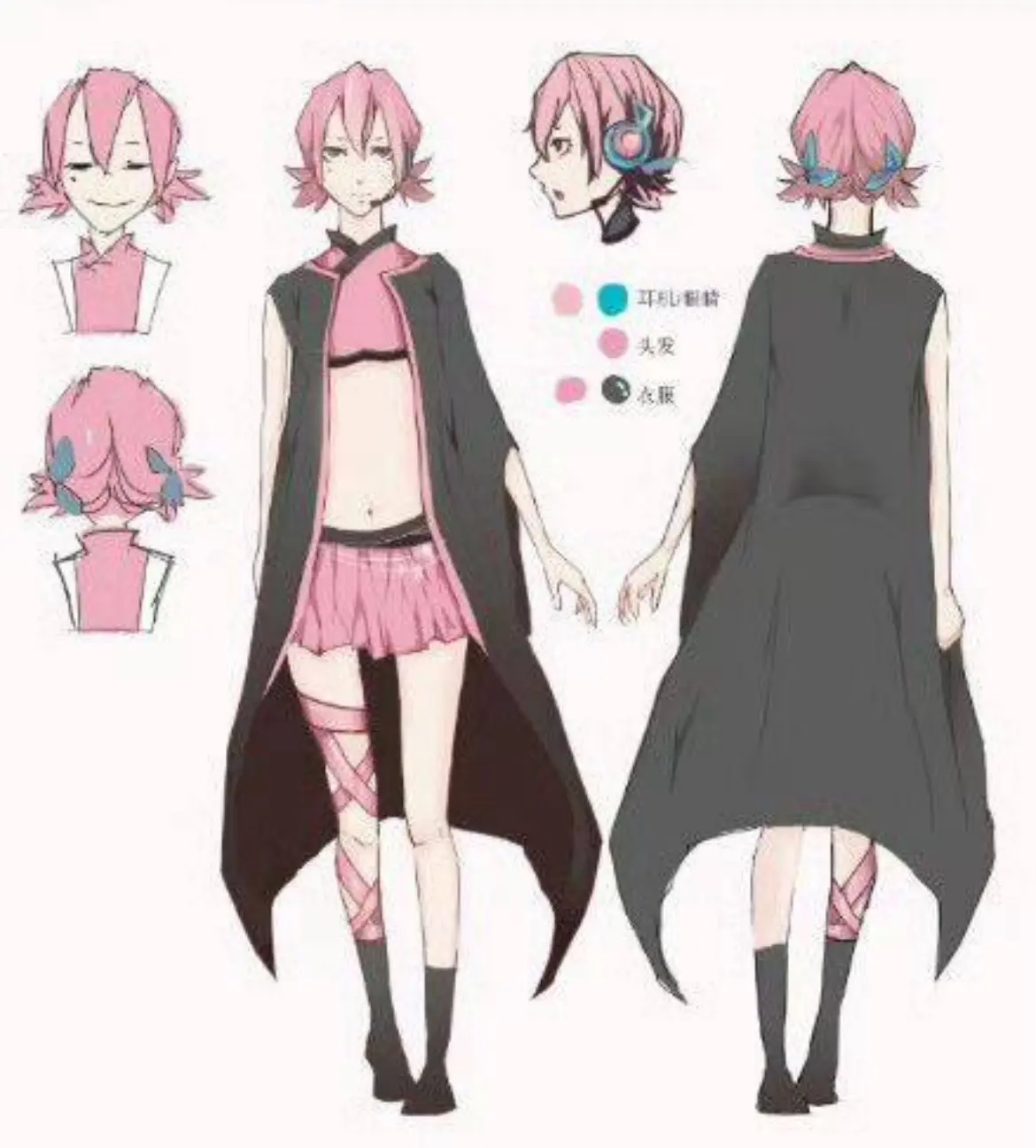
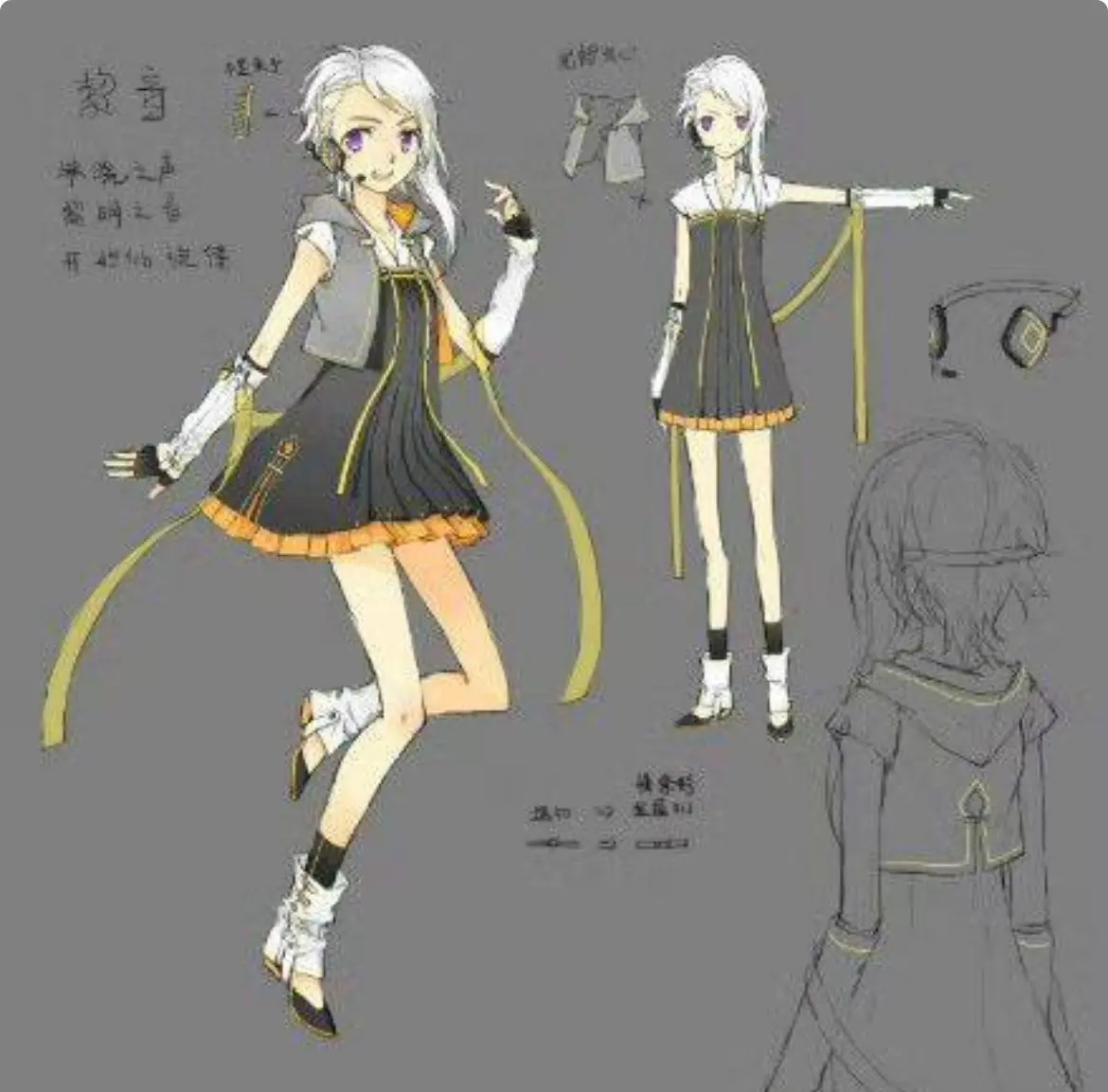
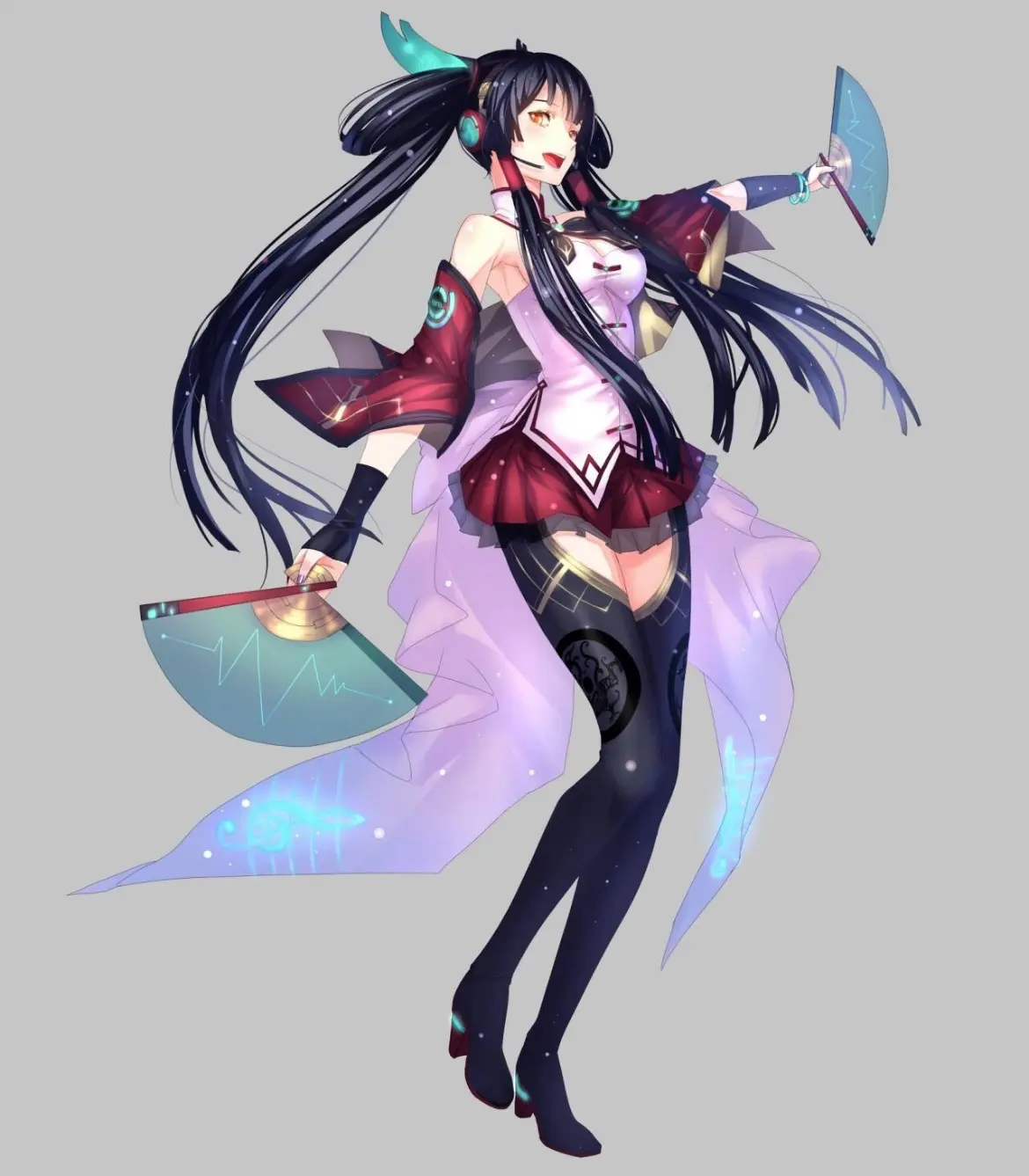
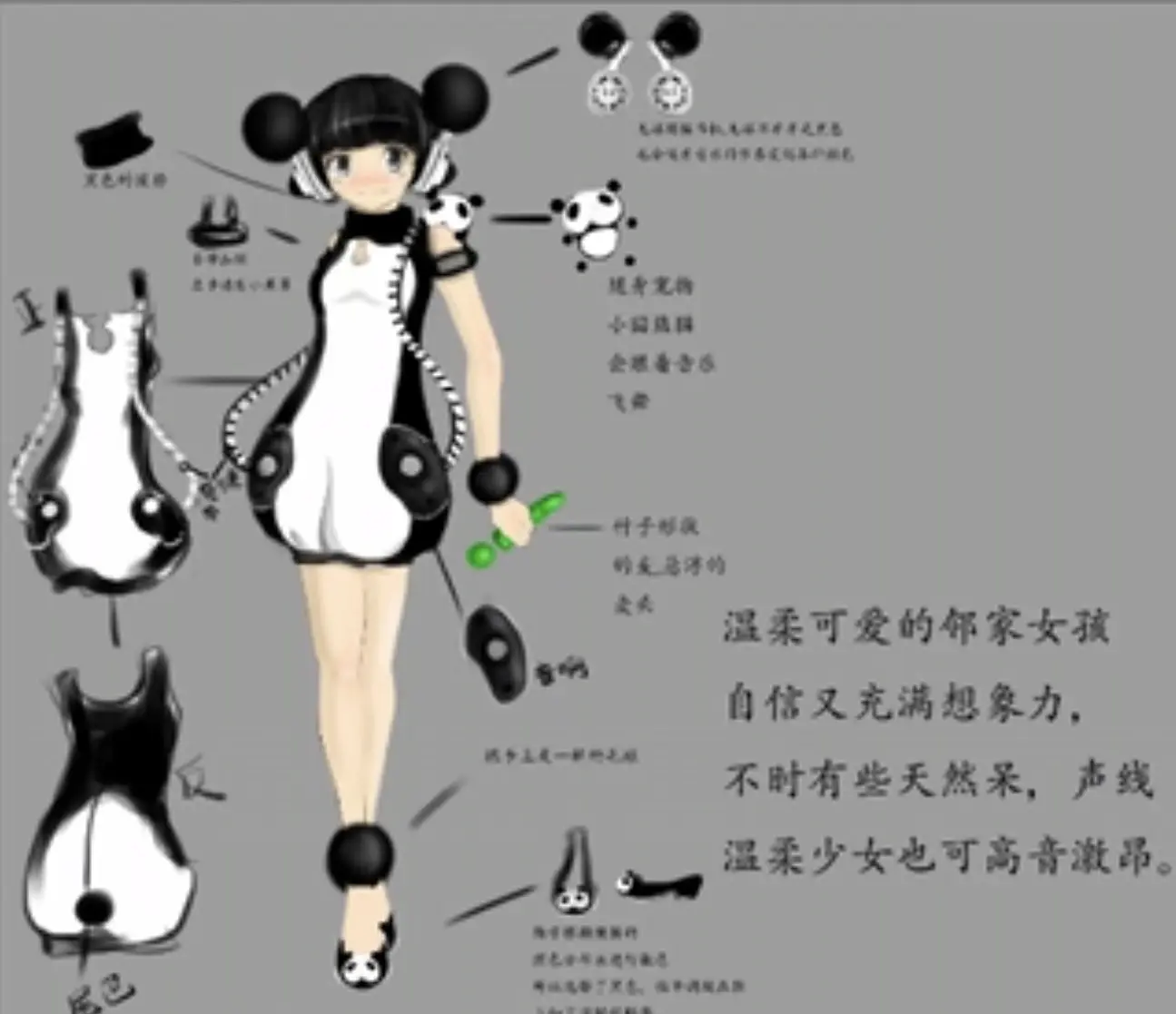
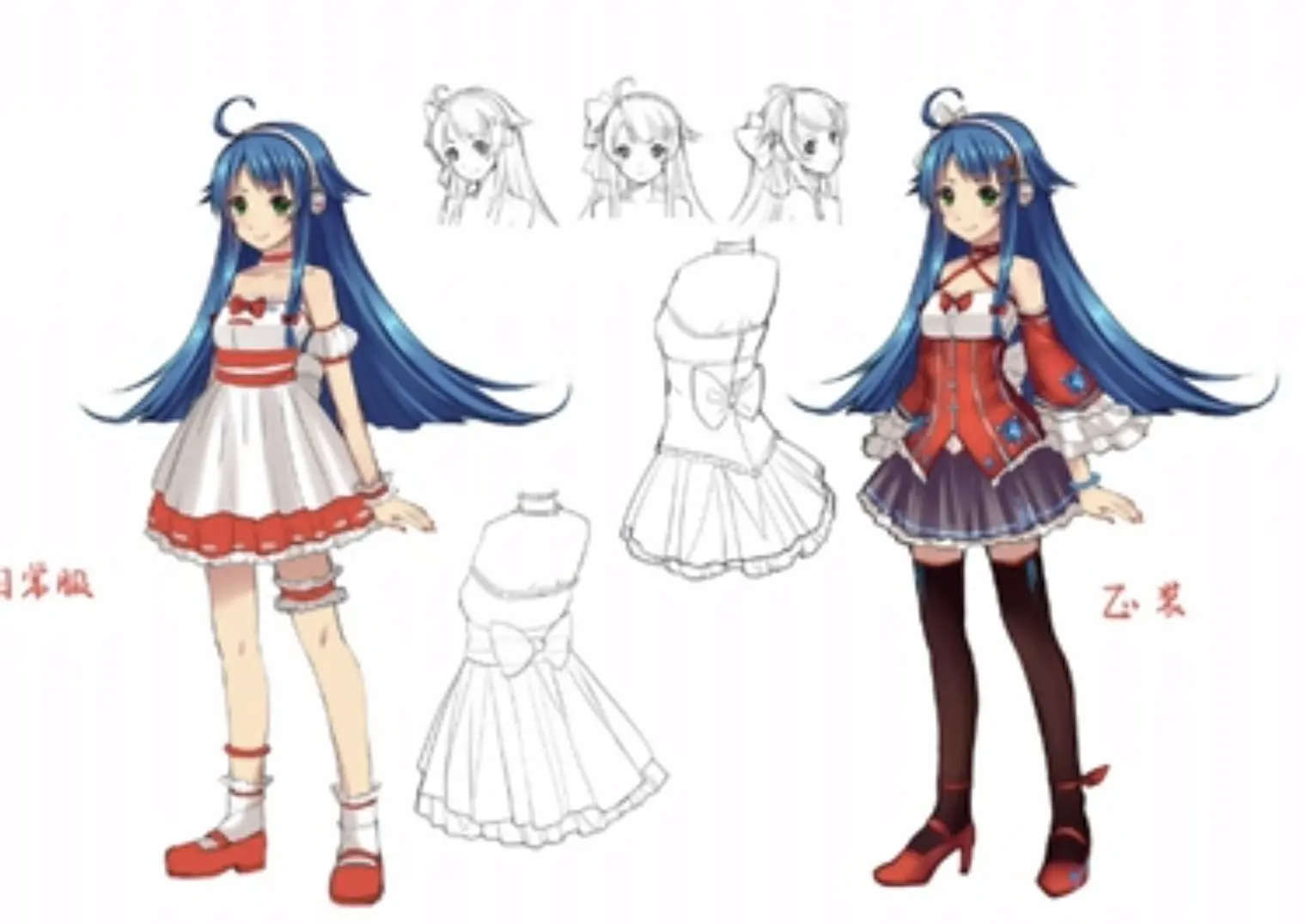
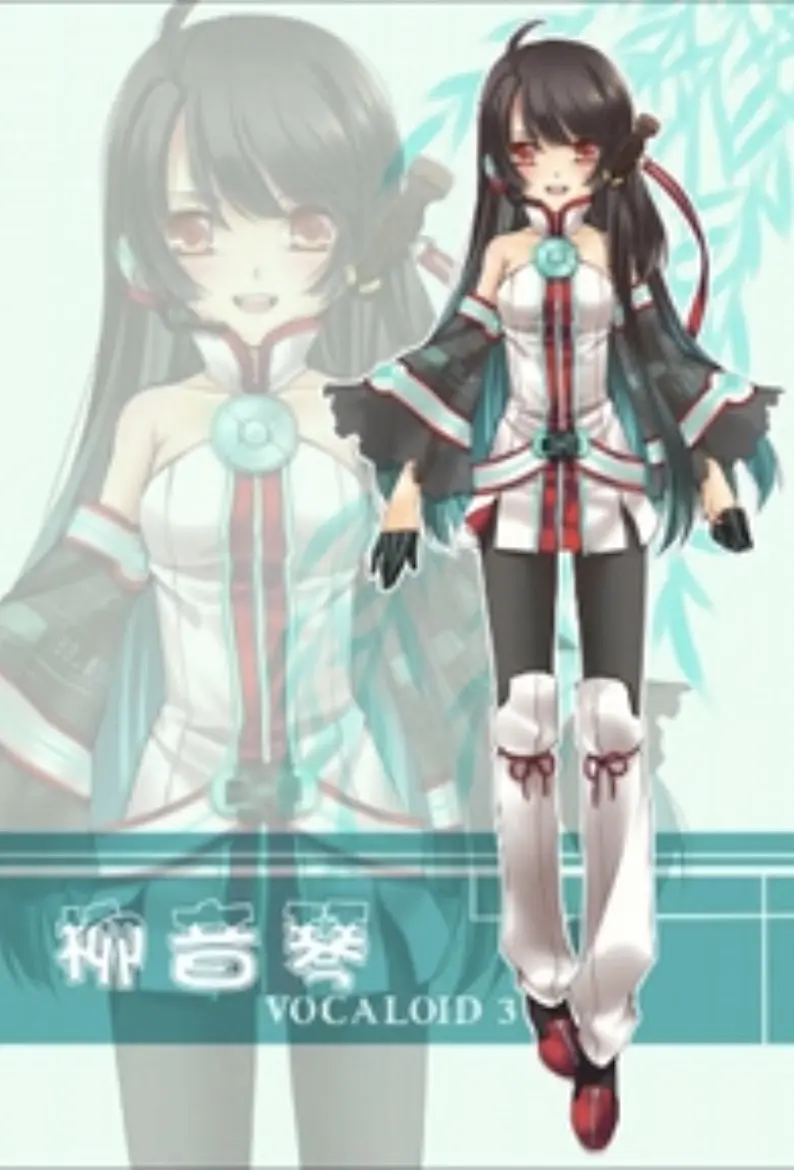
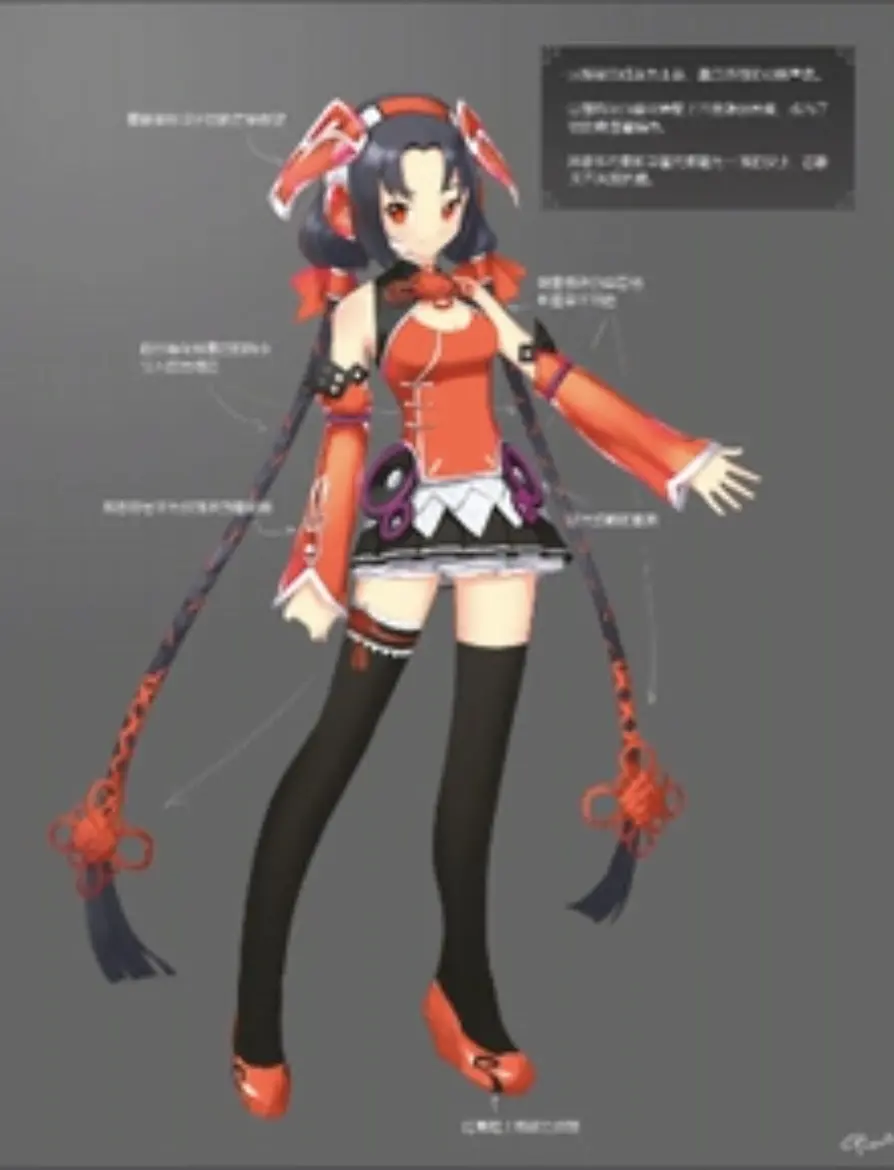
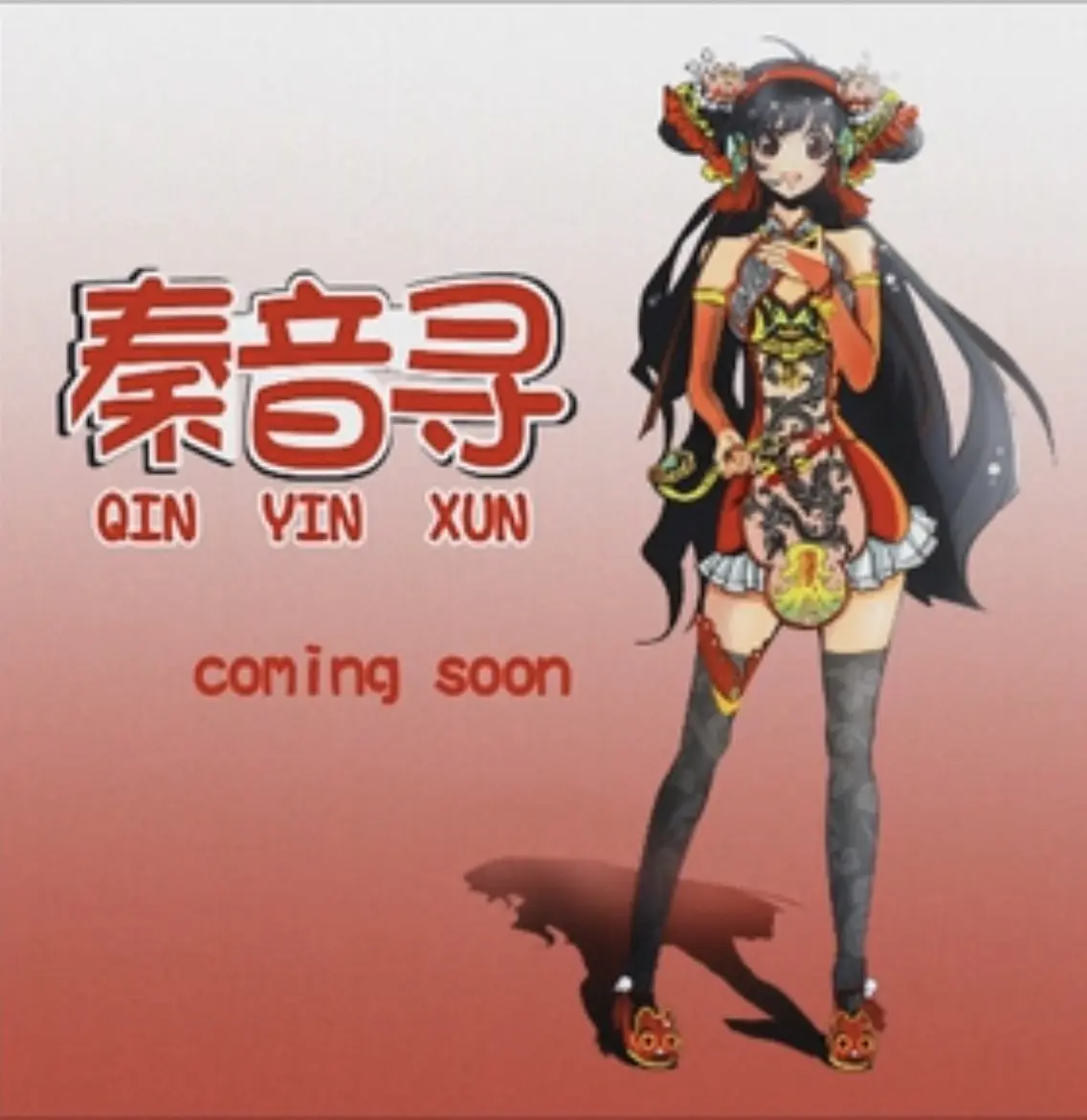
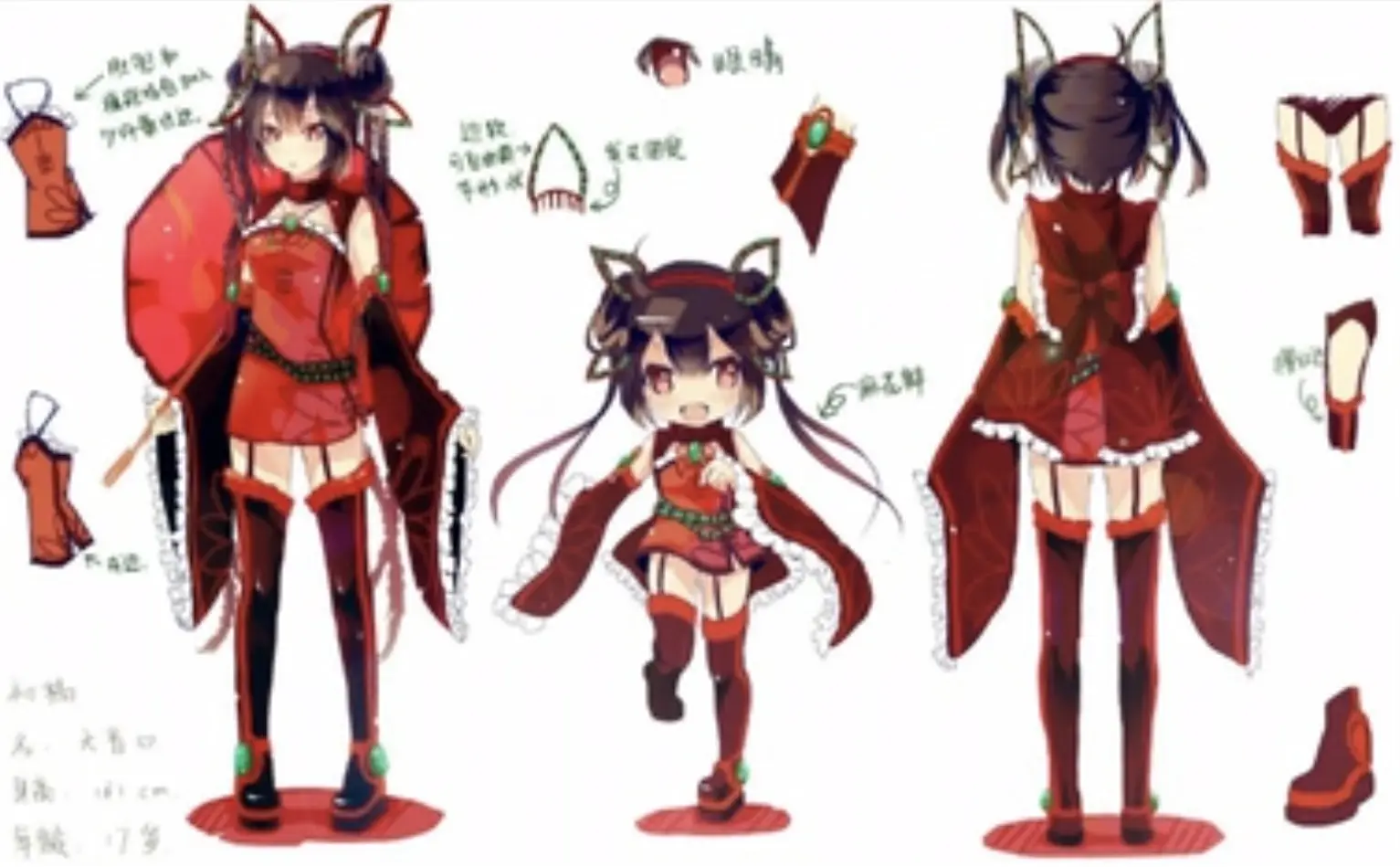
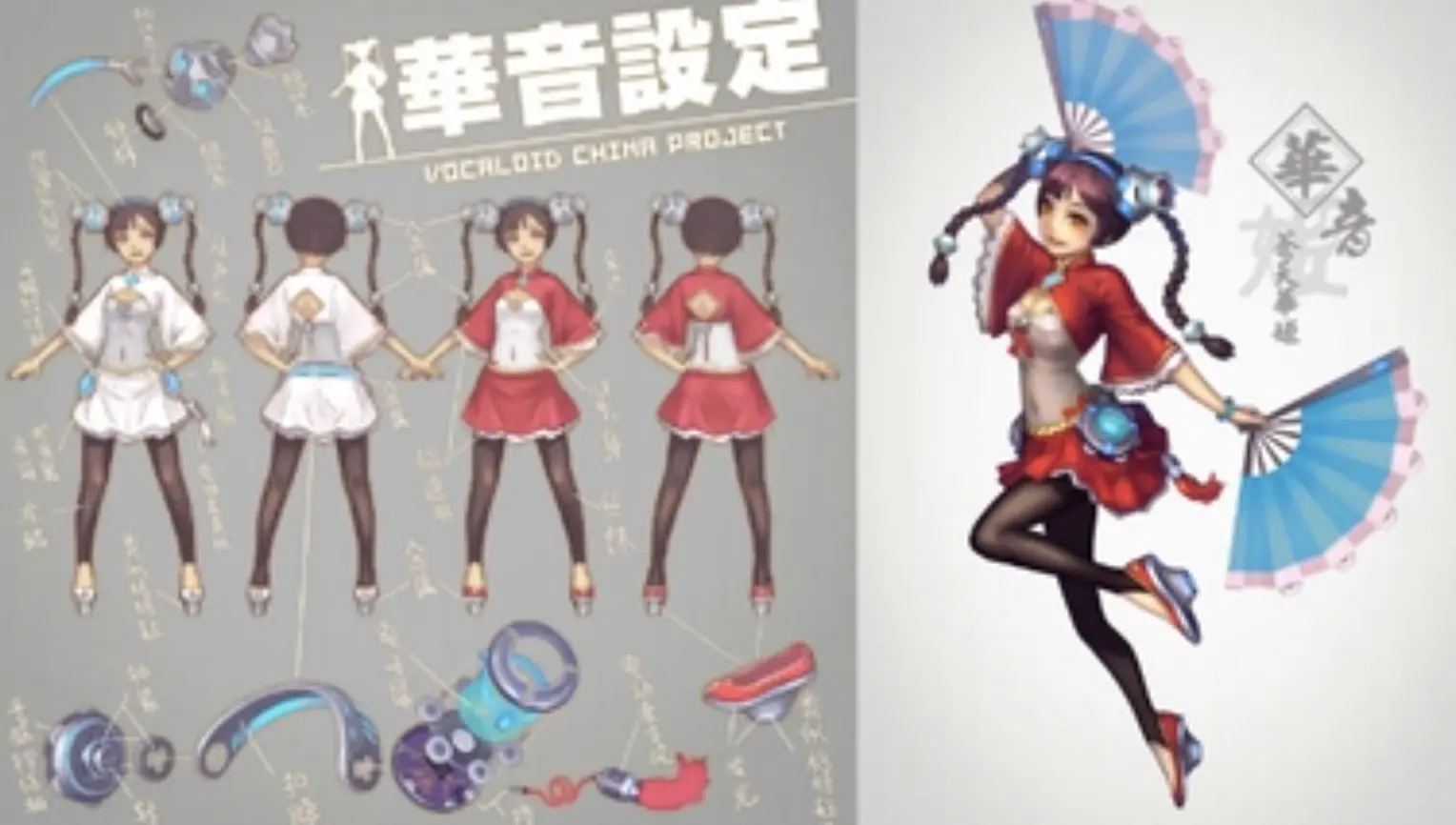
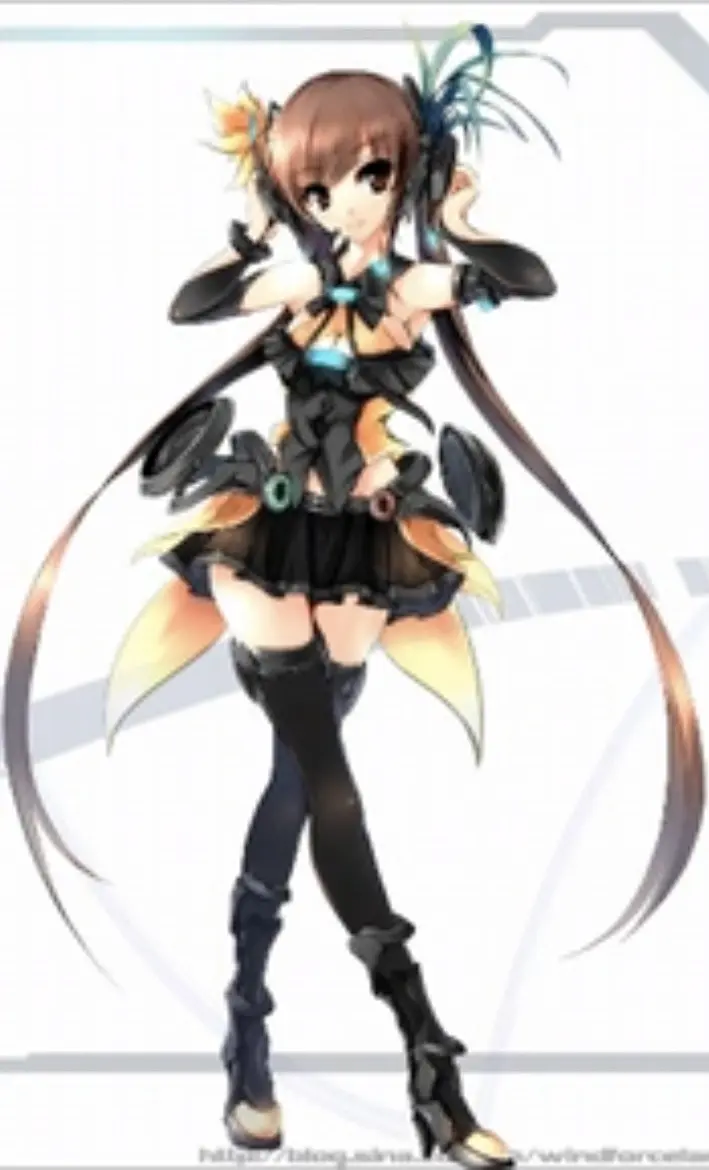
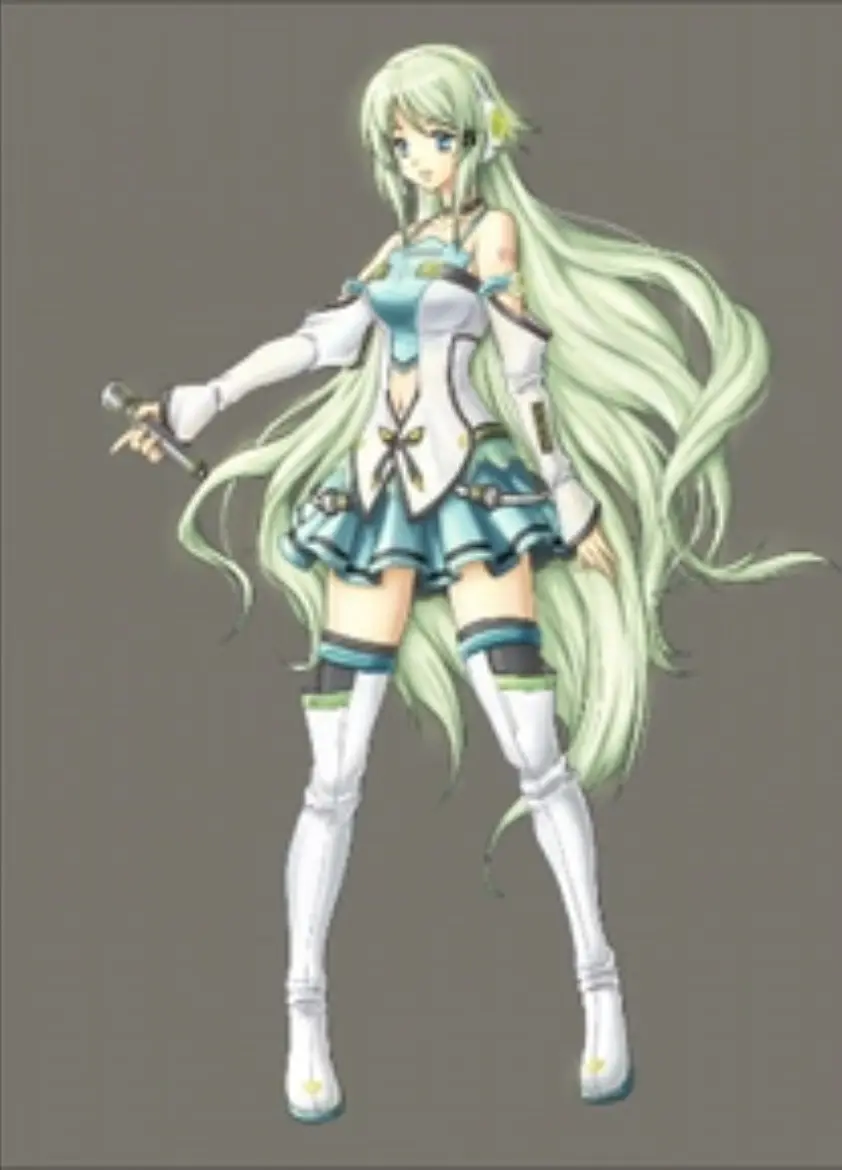
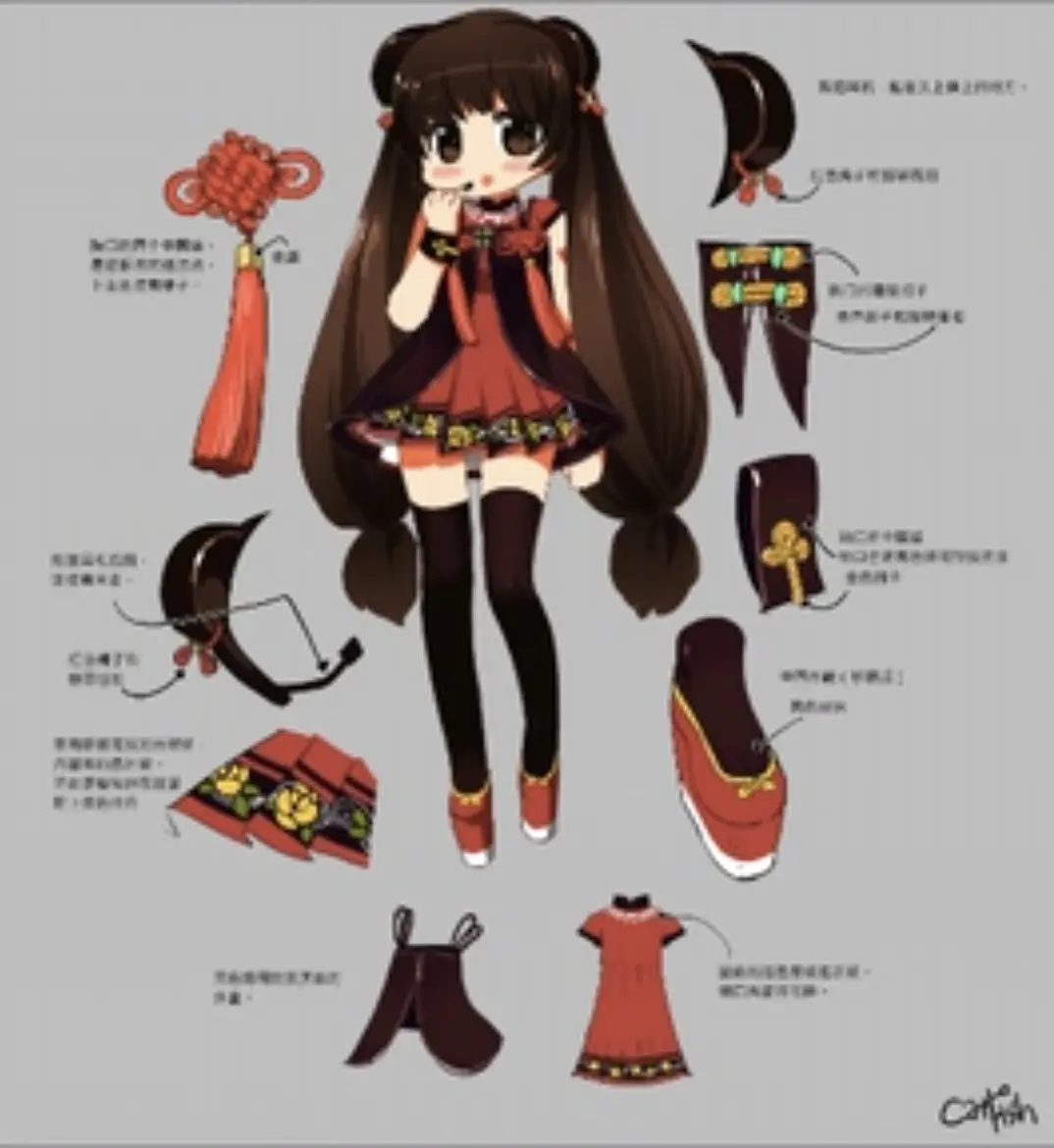
Criticisms/Concerns
The Miku Formula
“The Miku Formula” refers to the use of elements found in Miku’s design for other voice synthesizers (such as VOCALOID and UTAU). These elements are typically:
It’s important to note that Miku didn’t invent any of these design aspects, but her popularity influenced the use of them in future voice synthesizer designs. Below is a collection of popular character designs at this time that shared these elements. Of course, more than these exist, especially in the years following the design contest.
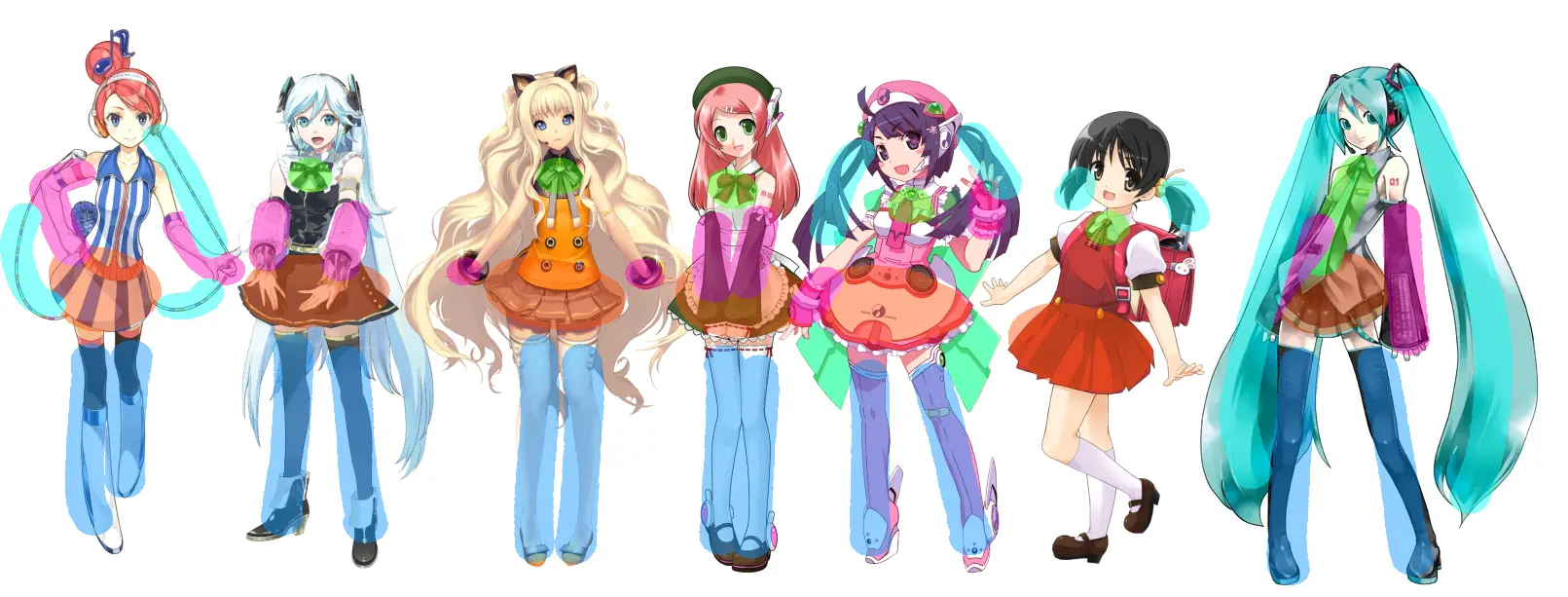
(Not including characters like Kasane Teto or Akita Neru/Yowane Haku, who are either purposely referencing Miku’s design traits or are a Miku derivative)
This is also why Athena from Ace Attorney looks like a VOCALOID.
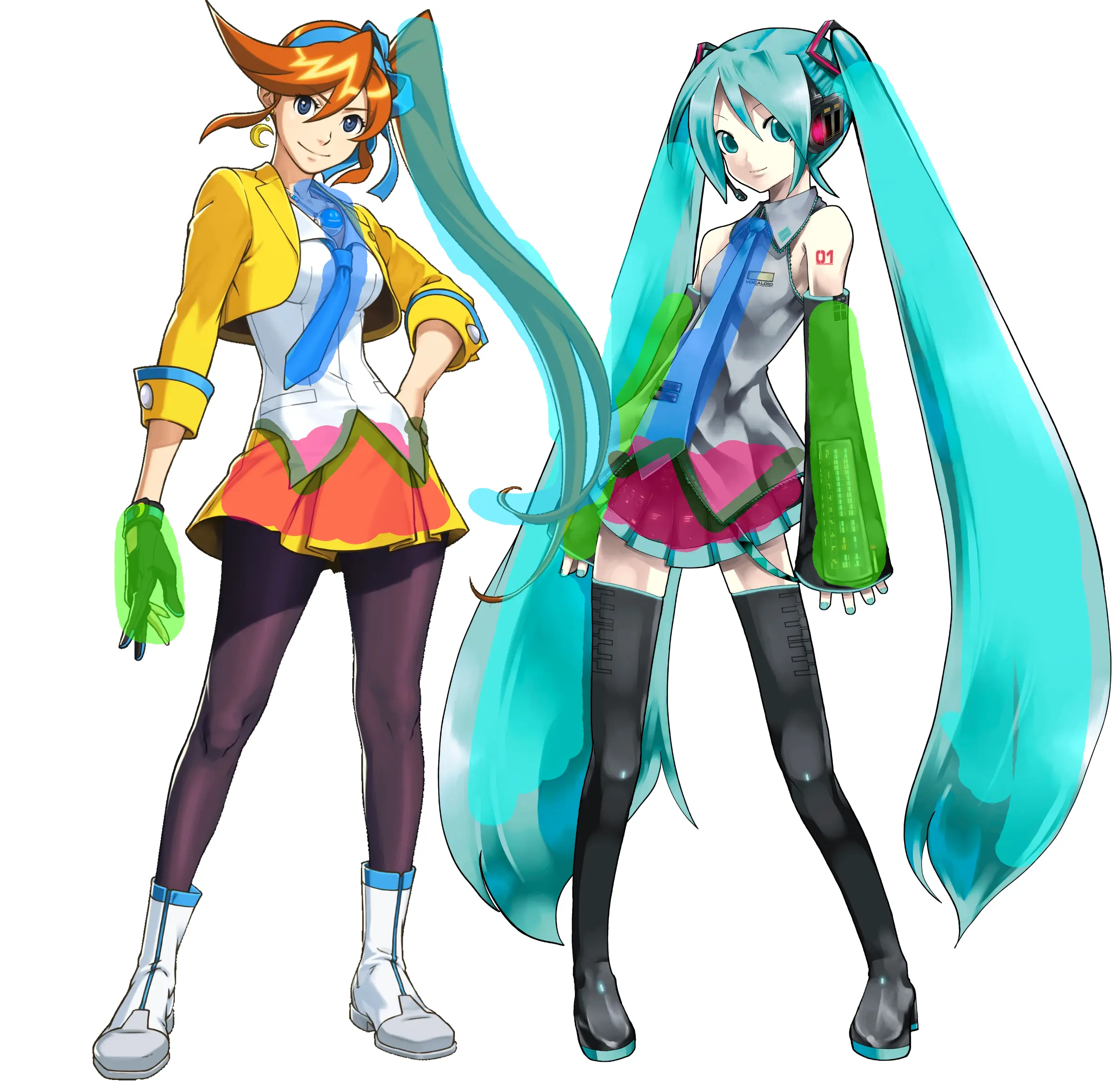
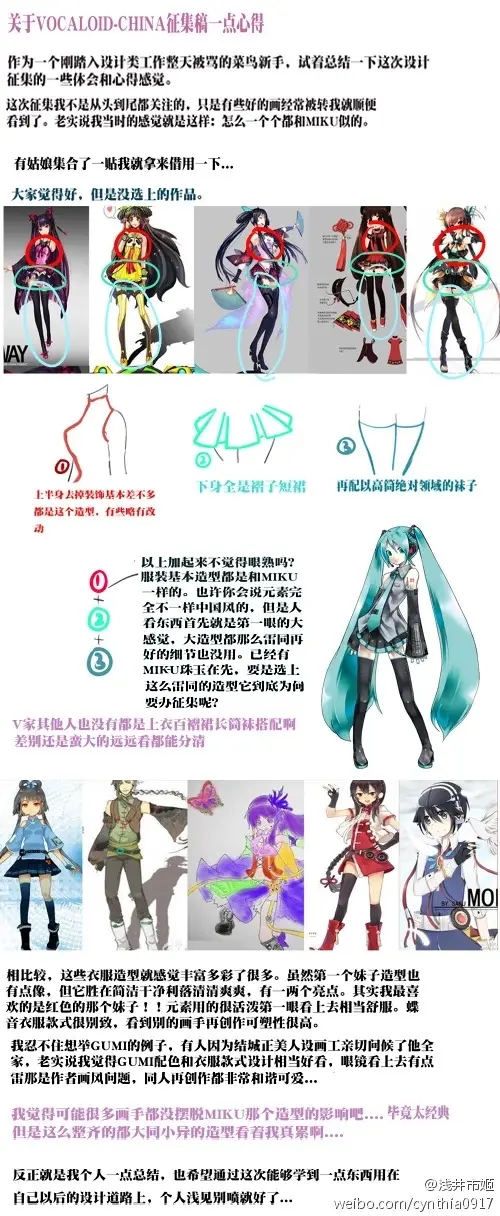
I didn’t follow this contest from the beginning to the end, but I saw some good drawings that were often reblogged. To be honest, my feeling at the time was: how come all of them look like Miku? Someone else put together a post and I borrowed it here… Works that everyone thinks are good but were not selected-> (top row of images).
In comparison, these clothes (referring to the second row, the winner & runner-ups) look much more colorful. Although the first girl's look is a bit Miku Formula leaning, it is simple, clean, neat and refreshing, with one or two highlights. In fact, my favorite is the girl in red!! The elements are very lively and look quite comfortable at first glance. Chou’s clothes are very unique, and I see that other artists have high creativity when recreating them.
Naming Conventions
These names were deemed unnatural sounding by native Chinese speakers, and were changed to more traditional Chinese sounding names.
Plagiarism

Character Backstory
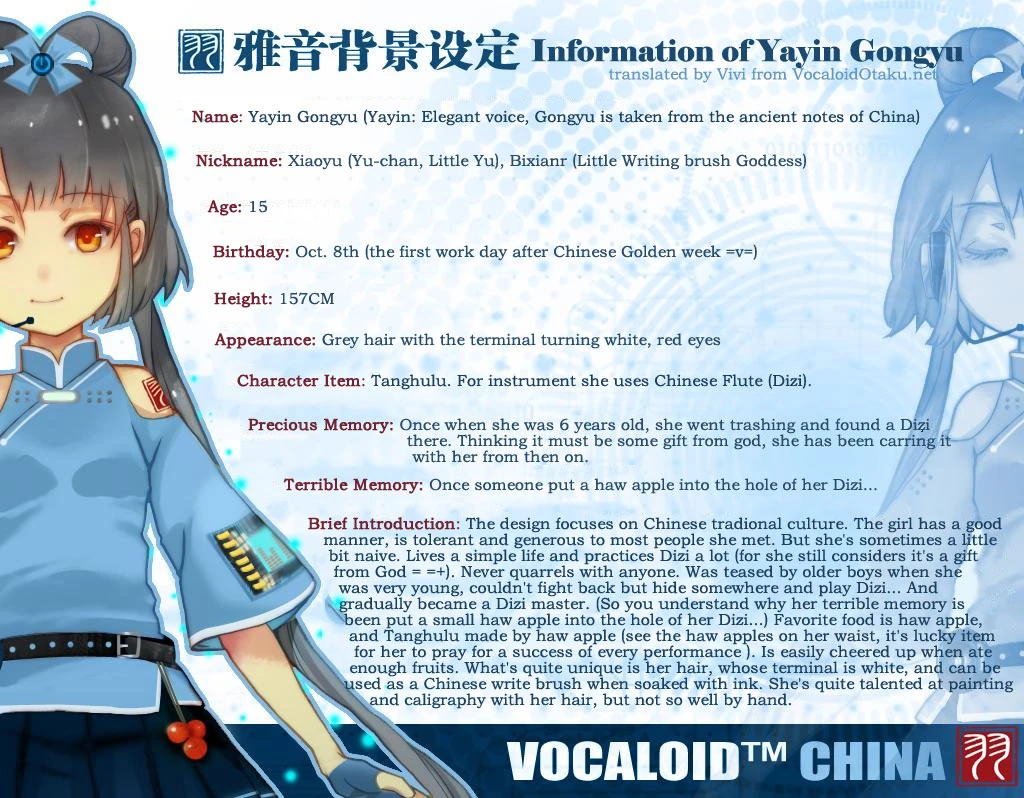
Closing
As the time around Yanhe's development was tumultuous, this ended up not happening, and a second design contest was held— the key difference with this contest being that fans would vote for the design they liked, rather than the winner being decided by SHN.
The winning designs from the first contest aren't referenced often by SHN, with the exception of Yayin Gongyu, who saw a revival around Tianyi's 10th anniversary and was included in celebration artwork.
